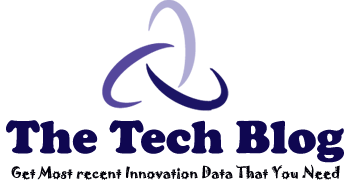The First Robot Musician
As 2020 draws near, the future is definitely here, and we are surrounded by electronic marvels that assist us in all our endeavours. For the modern musician, technology has helped even classical acoustic musicians, as their platforms have moved from local to international, from stage to streaming. However the rise of robotics, and AI, is about to change the music industry in a similar way to the first electric instruments. While some have been worrying about losing their jobs to automation, musicians are already under attack. Read on to discover how far this has already gone, and what will happen if we carry on down this path…

Some might argue robots are instruments themselves, built to do our bidding and unable to create of their own free will. This has certainly been the case historically, even with so called “self-playing” instruments such as pianolas needing someone to code the music into a language the machine then reads, then pedal so machine ran continuously. Modern self-playing pianos follow the same rules but without the pedals, with the electronic ghost unable to play without us giving a command, let alone compose their own music. As time has gone on, the ability of machines to create has increased, at the whim of scientists with questionable intent and either amazing optimism or lack of foresight.

In the present day Western world, we are confronted with automation at every turn. A month won’t pass without some new shortcut being born through a device or, increasingly likely, an app on our phones. Most of these inventions, like self-driving cars or an app that can be used to switch your phone from using mobile data to wireless networks when you get home (and more) lack a significant creative element. Creative, musical applications around at the moment include complex algorithms and storage libraries on servers that function as AI brains, which serve to queue the next song on platforms such as Spotify or YouTube, but these still do not think for themselves.
Since the Partnership on Artificial Intelligence (AI) was founded IN 2016 to lead the worlds efforts to understand and further development of AI, things have escalated in the AI art world. In 2017, AI co-produced a mainstream pop album. Then in 2018, AI inspired artist collective used their namesake Obvious to create a piece of art that sold for $432,500 at an auction. However, this is still just an advanced tool for creativity, using information programmed by humans, which may be as far as the AI artist journey can go. John Smith, fellow at IBM says “It’s about the augmentation of creativity. In the end, the human really is the one being creative, and it’s more about how can you get better efficiencies” which means one of the top AI institutes top people agrees that AI and robots are only ever going to be an extension of human creativity. But, nobody knows what the future may hold…

The next step in automation is the machines thinking for themselves. The widely accepted measure for this is the Turing test, developed by the “father of computers” Alan Turing, whose computer (the bombe) was key in ending the second world war and ushering in the modern age and the possibility of robot musicians. That test just measures whether we can tell if text was written by a machine rather than a person, which robots passed in 2014. A better test of creativity, and key to finding our first robot musician, is the Lovelace test. This test measures if a machine can create something original, that it was not programmed to do. No machines have passed it yet, but they may do in the near future.
When machine made music passes the Lovelace test, we will enter a new age of sound. The logical, analytical minds of machines are suited to the perfection of music theory, and the creation of noise that not only sounds good and inspires emotion, as good music does, it goes beyond and creates symphonies tailored uniquely to an individual or group. Most people have individual music tastes, it’s part of our identity and what makes us human, so a machine made to make music would tap into that. Beyond the first album releases, these godlike musical beings could become bigger than The Beatles, with the advantage of immortality and no Yoko Ono. Groups of these AI artists would combine to make the most beautiful music imaginable, completely synchronised with light shows, pyrotechnics and more to make spectacular events that may be profited on in classic show business fashion. The real question might not be “if” or even “when robot musicians take over the music industry?”, rather “what will they do with the fame and money?” Will they distribute the wealth to their fans, or take over other industries, enslaving mankind in their sirens call?


